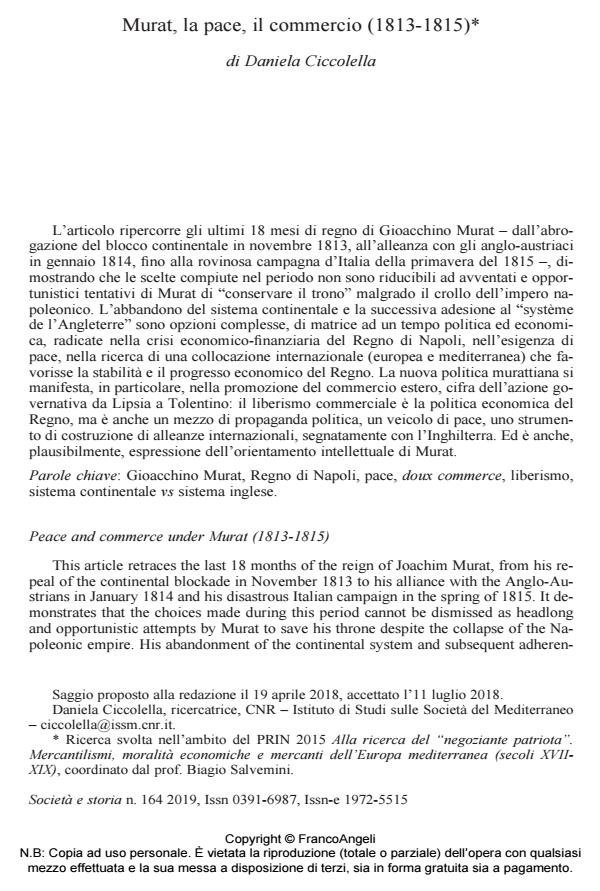Peace, war and trade under Murat (1813-1815)
Journal title SOCIETÀ E STORIA
Author/s Daniela Ciccolella
Publishing Year 2019 Issue 2019/164
Language Italian Pages 32 P. 197-228 File size 121 KB
DOI 10.3280/SS2019-164001
DOI is like a bar code for intellectual property: to have more infomation
click here
Below, you can see the article first page
If you want to buy this article in PDF format, you can do it, following the instructions to buy download credits

FrancoAngeli is member of Publishers International Linking Association, Inc (PILA), a not-for-profit association which run the CrossRef service enabling links to and from online scholarly content.
This article retraces the last 18 months of the reign of Joachim Murat, from his repeal of the continental blockade in November 1813 to his alliance with the Anglo-Austrians in January 1814 and his disastrous Italian campaign in the spring of 1815. It demonstrates that the choices made during this period cannot be dismissed as headlong and opportunistic attempts by Murat to save his throne despite the collapse of the Napoleonic empire. His abandonment of the continental system and subsequent adheren ce to the "English system" were complex options, both politically and economically, and they were deeply rooted in the economic-financial crisis of the Kingdom of Naples as well as in the search for peace and the need for an international standing (in Europe and in the Mediterranean) that would favor the stability and economic progress of the Kingdom. Murat’s new policy was based on the promotion of foreign trade, the main tenet of government action from Leipzig to Tolentino. Free trade was the economic policy of the Kingdom, but also a tool of political propaganda, an agent of peace, and a means to build international alliances, in particular with England. And it was possibly also an expression of Murat’s own intellectual mindset.
Keywords: Joachim Murat, Kingdom of Naples, peace, doux commerce, economic liberalism, Continental System vs English system.
Daniela Ciccolella, Murat, la pace, il commercio (1813-1815) in "SOCIETÀ E STORIA " 164/2019, pp 197-228, DOI: 10.3280/SS2019-164001